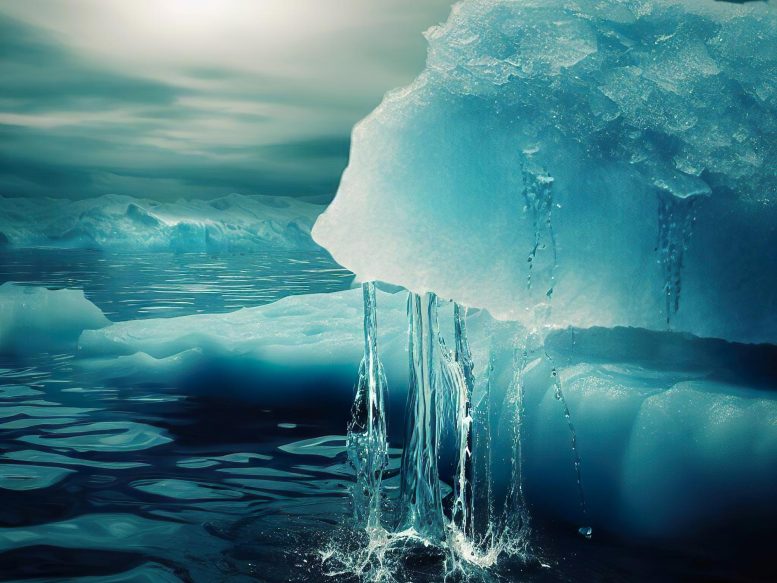
Polar ice is indeed melting, a process that is not only about the melting itself, but also about the balance between the snowfall and the ice melt. NASA’s satellite lasers monitor the thickness of the ice in Antarctica and Greenland, identifying where the ice sheets are thinning and losing mass most rapidly into the ocean. As of now, polar ice melt is the primary contributor to sea level rise, leading scientists to persistently study the relationship between ice sheets and sea levels.
Is polar ice melting?
The simple and straightforward answer is yes. It is, in fact, melting. But it’s a bit more complicated than that. You can think of ice sheets or Antarctica and Greenland as a bathtub full of water. And we want to know how much is going into that bathtub and how much is coming out.
So, for instance, snow falling over the ice sheet is like running the faucet. You turn on the faucet, it fills up with water, and then melting when you get a warm atmosphere or a warm ocean, it’s opening up the drain and letting water out. So it’s not just about melting. It’s also about how much snow falls and what the balance is there.
Is polar ice melting? The sobering answer is yes, and it’s the number one contributor to sea level rise. NASA scientist Dr. Brooke Medley tells us how NASA studies the relationship between ice sheets and sea level to better understand our changing planet. Credit: NASA
At NASA, we are able to monitor both Antarctica and Greenland really easily from space. And we have satellite lasers that actually measure the thickness of the ice through time. And so we can actually monitor where the ice sheets are thinning and most rapidly losing mass into the ocean.
So, is polar ice melting? The answer is yes. And at present it is the number one contributor to sea level rise. And that’s why NASA has scientists like myself studying the relationship between ice sheets and sea level every day.
We Asked a NASA Expert Video Series
- Why is Sea Level Rising?
- Why is Venus Called Earth’s Evil Twin?
- Is NASA Really Crashing a Spacecraft Into an Asteroid?
- Is NASA Aware of Any Earth-Threatening Asteroids?
- When Was the Last Time an Asteroid Hit Earth?
- How Did Perseverance Mars Rover Pick Its Landing Spot?
- What if an Asteroid Was Going To Hit Earth?
- Did Mars Ever Look Like Earth?
- What Are Lagrange Points?
- What Are the Trojan Asteroids?
- Is There Oxygen on Mars?
- Does NASA Know About All the Asteroids?
- Do Aliens Exist?
- Is There Weather on Mars?
- Will an Asteroid Ever Hit Earth?
- Is Mars Habitable?
- Could Microbes Survive a Trip to Mars?

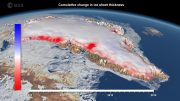
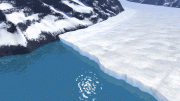
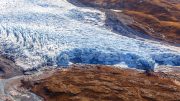
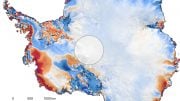
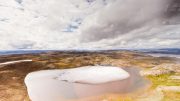
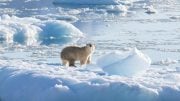
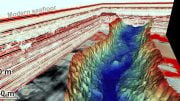
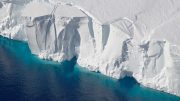
“And that’s why NASA has scientists like myself …”
like myself?
seriously?
your 7th grade English teacher would like to have a word with you.
Polar sea ice melt does not contribute to sea level rise!
And this from a NASA “scientist”????
Garbage
North pole ice sheets are floating. They have already displaced the non-frozen water. So when this ice melts it will not cause the oceans to rise. It might even cause the oceans to drop due to the volume reduction when ice changes to water.
Stupid headlie. Stupid article. Waste of space. Everybody knows the polar ice is melting. Satellite photographs are available to kindergartners. C’mon people! Stop wasting time on this.
Ice may be Melting, but new Ice is forming just as fast! Science will show whatever the Money tells it to!
“So, is polar ice melting? The answer is yes. And at present it is the number one contributor to sea level rise.”
Strictly speaking, the answer is “No.” The approach mentioned does not distinguish between meltwater that flows into the ocean, meltwater that evaporates, or snow and ice that sublimates and goes into the air. As pointed out above by Miles and David above, floating sea ice does not contribute to rising sea level. Greenland ice is melting in portions of the island, but it is stretching definitions to call Greenland “polar” when portions of it are below the Arctic Circle.
Similarly with Antarctica, the loss of snow and ice across the continent is composed of calving (which only occurs at the margins), melting, evaporation of meltwater, and sublimation of interior snow and ice. It is only the calving and contribution of basal meltwater that contributes to rising sea level. Some of the interior areas have such high rates of wind-caused sublimation that snow is often lacking and make good places to hunt for meteorites. I think that the problem is more complicated than what is presented, and leaves out evaporation of surface meltwater and sublimation of snow and ice. Look up “Antarctic dry valleys”.
Is this article meant as another scare tactic ? It reads misleading….
More to the point, if this melting is supposed to be the result of our adding CO2 for energy to improve our lives, what can realistically be done to stop it from taking place? More scary stories do not help.
Are ocean temperatures at a record high? Or do people whose only concern is money care? Or are conservatives really that stupid?
Stop lying! All this Green Alarmism is phony garbage funded by America’s enemies and competitors! Just lookup how much much funding flows into Green groups from Russia, China, and other nations who hate
us. THE GIG IS UP LEFTIES!!!…
If the ocean levels are rising that quickly how come there are no coast lines are receding?. Shouldn’t New York, California and Hawaii be under water by now?.
There are websites online that show you what will be underwater (at risk, flooded or submerged) online, depending on what level/time. According to one of these websites, by 2080, West Bengal + Bangladesh Deltas, Chattogram, Bangkok, More than half of the Netherlands, Antwerp, almost every small island in Indonesia and the Pacific, as well as Louisiana (not sure of its name, I am not from the states, a USA city in the Mexican Gulf) will be at high risk. This is because ice, particularly ice above sea level, is heating above freezing temperature and channeling into the ocean. It’s OK if you want to blame Russia and/or China, you’ll probably be dead before you get out of that rabbit hole your in so I don’t care. This world hopefully won’t have room for bigots like that soon. And for Tim, it’s a slow process. These estimations are by 2080, doesn’t mean it isn’t a threat. Also, check how high those places are – in meters above sea level. Certain areas will be prone to flooding while others, like Australia or some Indonesian islands for example will be fine. If you do read this and want to talk further, here’s my email: [email protected] . I feel bad for that Titus guy… yeah. See ya.
I hate to burst your bubble Bentley but unbiased scientists that recently retired said ice melt is being replaced and repleated every few yrs, and thus will not pose any issues to coastal areas for 250+ yrs. Also, this whole climate issue has been an issue since the 60’s and has been 100% poltical from day one. Every single claim since then (over 42 claims), made by celebs, politicians,etc were about ice age coming until the 80’s then it was cold and heat, then climate change, on and on. Folks that has ALL been debunked. So explain why many of the goons pushing this rubbish agenda (because thats what it is) are buying land and expensive estates, literally on the beach? They would not do this if things were going to ve under water in the next 30, 60, 100 yrs+. Many of these goons said these places would ve under water by 1996, 2004, 2009 2010, 2012, 2015, 2018 and 2020. All 100% wrong. Total lies to line their pockets $, simple facts. The very goons pushing the lie are the same one’s profeting from it. Same people profiting from the coof. Various billionaires, big companies etc, wanting to reduce and control humaity. Theyre also removing the ability to pull up facts from history because it hurts their $ and grandplan.
NASA….I love that show !!
Poorly written. Perhaps NASA could benefit from journalists or communications experts writing articles, instead of scientists
Rivers run in to ocean all day , every day, now why would that not contribute to ocean levels rising.. and climate change is real ,I believe. It’s always changing and always will. TA – DA !!
Wow… I asked a NASA scientist if snow was cold… he said yes. He also told me that water was wet… I know… “science”, right?
Even the title of this article is dumb… of course polar ice melts… then freezes… then melts. I don’t know why this is concerning. And measuring ice from space is great… just the nature of ice buildup and thawing would make ice uneven… so it will be thinner in some spots over others due to snow density, coldness of the winter, etc. Now, I assume that this article is meant to have us draw a conclusion that somehow ice melt will cause sea levels to rise and kill us all… yet all the climate models and other predictive weather models are wildly inaccurate when extended more than a few days out. By nature a chaotic system is inherently unpredictable and almost impossible to model. Hence, decades of prognostication and thousands of alarmists have failed to make any accurate predictions.
So here is a perfect example of a title that is factually correct, an article that is factually correct, and in its entirety completely false and misleading. Yes… seas levels rise (and fall). Yes… polar ice melts and is replaced. Yes… sea ice is monitored. Yes… sea levels are monitored. None of this put together means anything… but the article hints that we need to fear something. I can with 100% accuracy say that sea ice melting is the number 1 contributor to oceans rising. I can also say that ocean water freezing is the number 1 contributor to ocean water levels falling, but it doesn’t mean that there is a continuous trend of ocean levels rising. Each factual statement is correct but doesn’t mean anything without context and in depth analysis and debate, which is always completely lacking in these climate agenda articles.